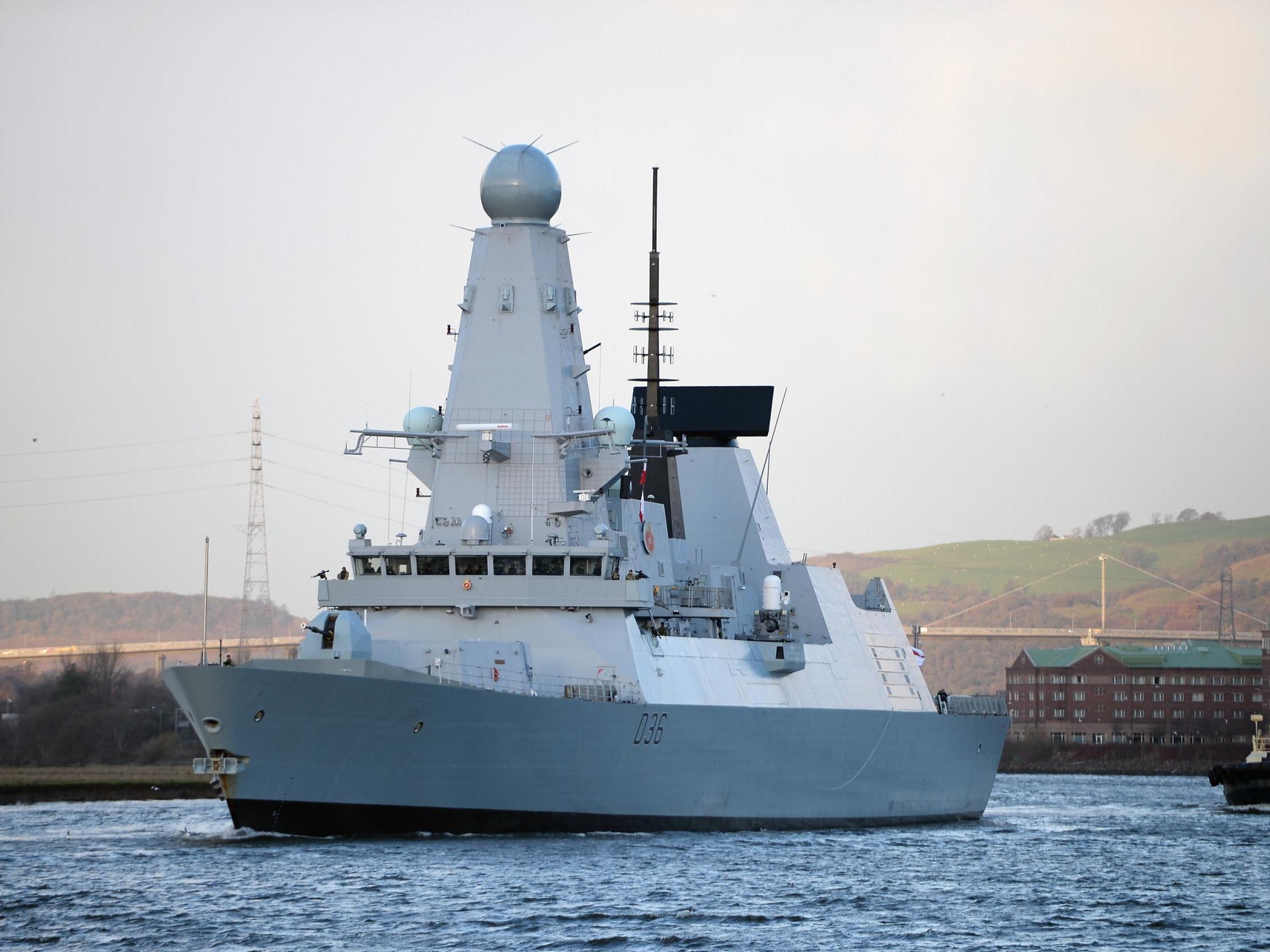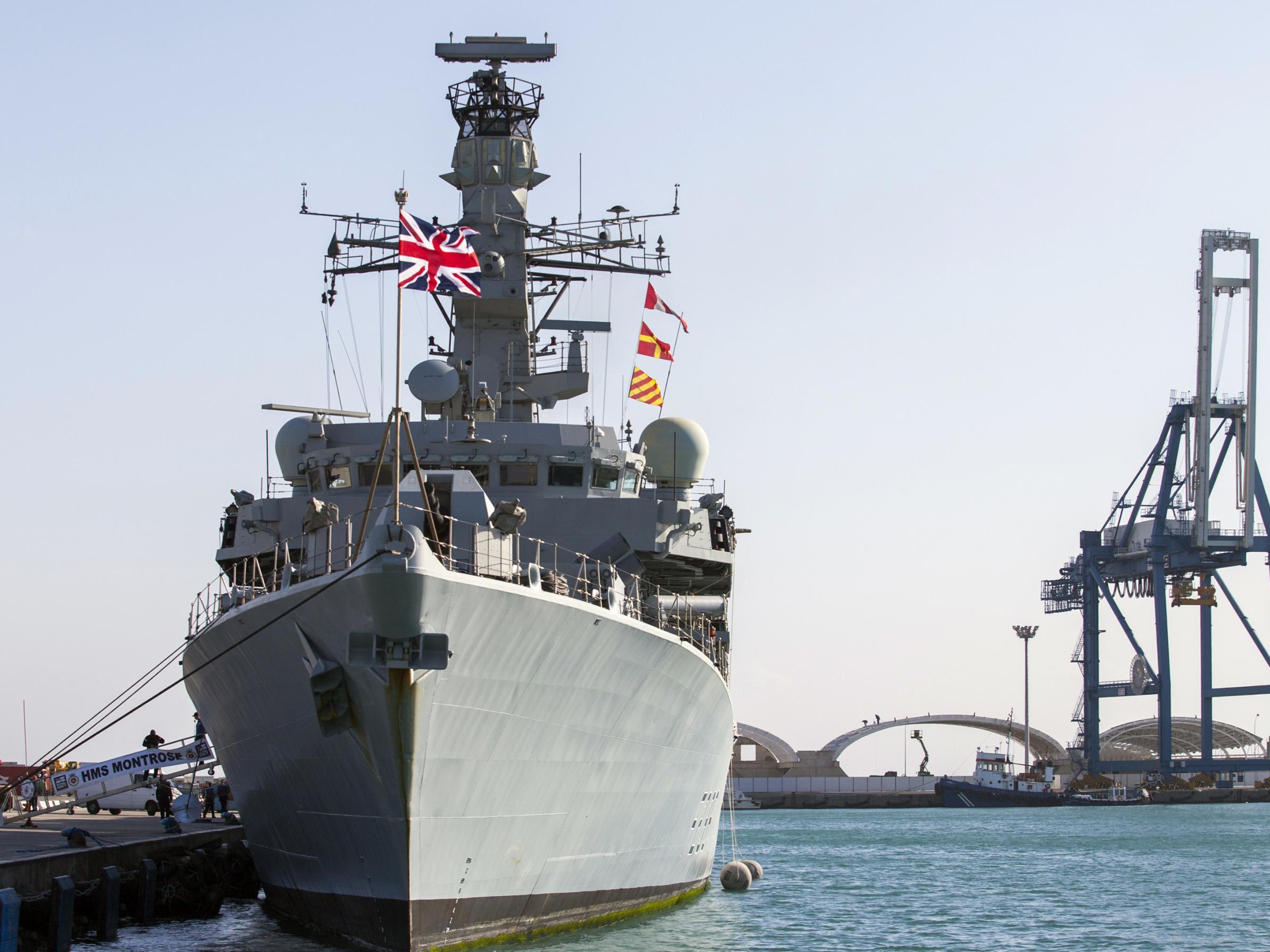Iran crisis: Navy to guard British ships in Gulf as tensions rise
Frigate HMS Montrose and destroyer HMS Defender sent to guide ships through key oil passage

Your support helps us to tell the story
From reproductive rights to climate change to Big Tech, The Independent is on the ground when the story is developing. Whether it's investigating the financials of Elon Musk's pro-Trump PAC or producing our latest documentary, 'The A Word', which shines a light on the American women fighting for reproductive rights, we know how important it is to parse out the facts from the messaging.
At such a critical moment in US history, we need reporters on the ground. Your donation allows us to keep sending journalists to speak to both sides of the story.
The Independent is trusted by Americans across the entire political spectrum. And unlike many other quality news outlets, we choose not to lock Americans out of our reporting and analysis with paywalls. We believe quality journalism should be available to everyone, paid for by those who can afford it.
Your support makes all the difference.The Royal Navy has been deployed to protect British ships in the Gulf amid escalating tensions over Donald Trump’s drone killing of Iranian commander Qassem Soleimani.
Ben Wallace, the defence secretary, said he has ordered two British warships to return to the Strait of Hormuz imminently to guide British-flagged vessels through the key oil passage.
He said the government “will take all necessary steps to protect our ships and citizens at this time” as Type 23 frigate HMS Montrose and Type 45 destroyer HMS Defender were deployed on Saturday.
The move came as the Foreign Office strengthened its travel warnings across the region as fears of all-out war heightened.
Tehran has vowed harsh retaliation after US president Donald Trump authorised the killing of General Qassem Soleimani in an airstrike on Thursday.
The US has also dispatched 3,000 extra troops to Kuwait.
Thousands of supporters chanted “death to America” as they marched in a funeral procession through Baghdad.
Mr Wallace urged “all parties” to de-escalate the situation – although he said the US was “entitled to defend itself”.
After speaking to his US counterpart Mark Esper, Mr Wallace said American forces have been “repeatedly attacked by Iranian-backed militia” in Iraq during “the last few months”.
He said: “General Soleimani has been at the heart of the use of proxies to undermine neighbouring sovereign nations and target Iran’s enemies.

“Under international law the United States is entitled to defend itself against those posing an imminent threat to their citizens.”
The practice of escorting ships in the Strait of Hormuz was stood down in November after being used during the fall-out from the seizure of the British-flagged Stena Impero tanker by Iran in July.
The difference this time is the fact UK ships now have a choice to navigate the waters without an escort at their own risk.
The Foreign Office has advised citizens not to travel to Iraq, apart from essential travel to its Kurdistan region, while all but essential travel to Iran is warned against.
Alerts regarding other Middle East nations are also being increased, with calls to “remain vigilant” in countries including Afghanistan, Israel, Lebanon, Saudi Arabia and the United Arab Emirates.
Dominic Raab, the foreign secretary, is set to meet with his French and German counterparts over the coming days before flying to Washington DC to meet US secretary of state Mike Pompeo on Thursday in a bid to reduce the tensions.
Labour’s John McDonnell condemned the government’s response to “this act of aggression, this escalation towards war” when he joined protesters outside Downing Street.
The shadow chancellor told the crowd with the Stop the War Coalition: “It was acts like this that led us to the catastrophic war in Iraq.”
Prime minister Boris Johnson has been celebrating the new year with his girlfriend Carrie Symonds on the private Caribbean island of Mustique and has not commented on the general’s killing.
He is expected to return to the UK early on Sunday.
Additional reporting by Press Association
Join our commenting forum
Join thought-provoking conversations, follow other Independent readers and see their replies
Comments